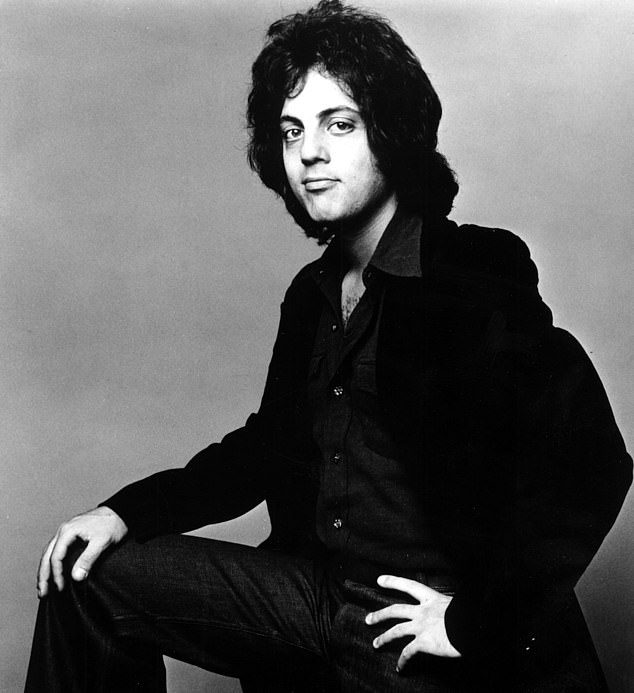Billy Joel is setting the record straight.
In his candid new two-part HBO documentary, Billy Joel: And So It Goes, the music legend tackles the ups and downs of his life in the spotlight, including long-standing rumors that he’s had multiple DUIs.
The 76-year-old singer, who announced he is battling the brain disorder, normal pressure hydrocephalus (NPH), earlier this year, makes it clear: those stories are false.
‘I didn’t like the tabloid kind of press. For example, there’s this rumor that I have all these DUIs,’ Joel says in the film. ‘That never happened.’
‘But people keep repeating the myth. ‘Oh, he’s got so many DUIs.’ I never had a DUI. So f**k you,’ he adds. ‘The press can be mean. So having that much attention paid to you is not easy.’
The deeply personal documentary, now streaming on HBO, explores a turbulent chapter in Joel’s life during the mid-2000s when he stepped out of the public eye.
Billy Joel is setting the record straight about the long-standing rumors that he’s had multiple DUIs; seen in January 2024
During that time, he was involved in several car accidents, leading many to speculate about substance use.
In June 2002, Joel crashed his 1999 Mercedes-Benz. The following year, he drove a 2002 Mercedes into a tree in Sag Harbor and was treated for head injuries.
Then in 2004, he lost control of his 1967 Citroen in Bayville, crashing into an empty house.
The final accident left him with a cut finger and minor damage to the car, according to the documentary.
Still, Joel insists those incidents weren’t alcohol-related.
In a 2013 interview with The New York Times Magazine, he clarified: ‘I never had a DUI in my life. That’s another fallacy. Look at the police records.’
Instead, he attributed the accidents to emotional struggles.
‘My mind wasn’t right. I wasn’t focused. I went into a deep, deep depression after 9/11. 9/11 just knocked the wind out of me, and I don’t know even now if I’ve recovered from it. It really, really hurt that man could do that to man. And then there was a breakup with somebody, and it took me a while to get me back on my feet again.’

The 76-year-old singer, who announced he is battling the brain disorder, normal pressure hydrocephalus (NPH) , earlier this year, makes it clear: those stories are false; seen earlier this year

In the mid-2000s, the singer was involved in several car accidents, leading many to speculate about substance use (his destoryed Mercedes Benz pictured in 2003)
And So It Goes, directed by Susan Lacy and Jessica Levin, not only clears up misconceptions but also takes a closer look at Joel’s battles with depression, substance abuse, and the road to recovery.
As Joel told People in a recent cover story, it wasn’t easy to revisit some of those moments.
‘Some of the stupid stuff I did, that’s painful to talk about,’ he admitted.
Initially hesitant about the documentary, Joel said, ‘My goal was to get it over with… When I do interviews, people just ask you about yourself and you get a little self-conscious about it eventually. It’s almost embarrassing. When you’re talking about your personal life detached from the material… I suppose there’s a little bit of wariness involved.’

‘I didn’t like the tabloid kind of press. For example, there’s this rumor that I have all these DUIs,’ Joel says in the film. ‘That never happened’ (seen in 1974)
The film also includes insights from those closest to him, including his sister Judy, daughter Alexa Ray, 39, and longtime friends and collaborators like lighting designer Steve Cohen and booking agent Dennis Arfa.
Cohen reflected on Joel’s resilience and drive: ‘You make mistakes. He always said to me, “You show up. You do the best you can. You admit when you’re wrong and you let other people tell you how good you are. You don’t tell yourself how good you are.”‘
And ultimately, Cohen hopes fans walk away with a deeper understanding of the man behind the music. ‘I hope fans walk away realizing how f**king human he is, and I hope they come back listening to these songs again with a deeper affection. I hope that you walk away from this thing going, ‘I now justify my fandom. I know why this guy is as good and why I respond to it, because that’s the kind of guy I can relate to his life. I can relate to those emotions.’
Despite his hesitations to do the documentary, Joel was an open book as he looked back on his failed marriages, battle with alcohol, financial troubles and much more.
The singer also opens up about pre-fame suicide attempts and his mother’s alcoholism.
And So It Goes has already gained glowing reviews from Rolling Stone, Variety, and Newsday.

In a 2013 interview with The New York Times Magazine, he clarified: ‘I never had a DUI in my life. That’s another fallacy. Look at the police records’ (seen last year)
In May, the Piano Man singer shared that he had been diagnosed with normal pressure hydrocephalus (NPH).
The condition has impacted Joel’s ‘hearing, vision, and balance,’ according to the social media post.
A spokesperson for the singer said that his condition had been ‘exacerbated’ by recent performances.
Normal pressure hydrocephalus is caused by too much fluid collecting in the ventricles, or spaces in the brain and spinal cord, putting pressure on these areas and triggering its symptoms, including struggling to walk, an inability to control the bladder and memory problems.
This happens because the excess fluid compresses and stretches the brain tissue, interfering with the control of muscles and communication between nerve cells.

In May, the Piano Man singer shared that he had been diagnosed with normal pressure hydrocephalus (NPH); seen in 1978

Joel’s illustrious career as a musician began back in the mid-1960, which led to the release of debut studio album, Cold Spring Harbor (1971)
When diagnosed early, NPH can often be effectively treated with surgery that drains excess fluid from the brain, relieving pressure and symptoms – but it can often be mistaken at an early stage for other illnesses such as dementia.
However, if left untreated, the condition may lead to permanent damage in its later stages.
Joel’s illustrious career as a musician began back in the mid-1960, which led to the release of debut studio album, Cold Spring Harbor (1971).
But it failed to gain any real traction until after the success of his follow-up, Piano Man (1973), that peaked at number 25 on the US Billboard Hot 100 and number four on the Adult Contemporary singles chart.
Now an established name on the musical landscape, Joel became a million seller with the release of Streetlife Serenade (1974), but his commercial breakout making him a bonafide star came with the release of The Stranger (1977), which featured the hit singles Movin’ Out (Anthony’s Song), Just The Way You Are, She’s Always a Woman, The Stranger, and Only The Good Die Young.
He would go on to release a 13th album – Fantasies & Delusions (2001) – that features classical compositions from Joel, a first for him during his career.
With over 160 million records sold worldwide, Joel is one of the world’s best-selling musical artists, and the fourth-best-selling solo artist in the United States.


